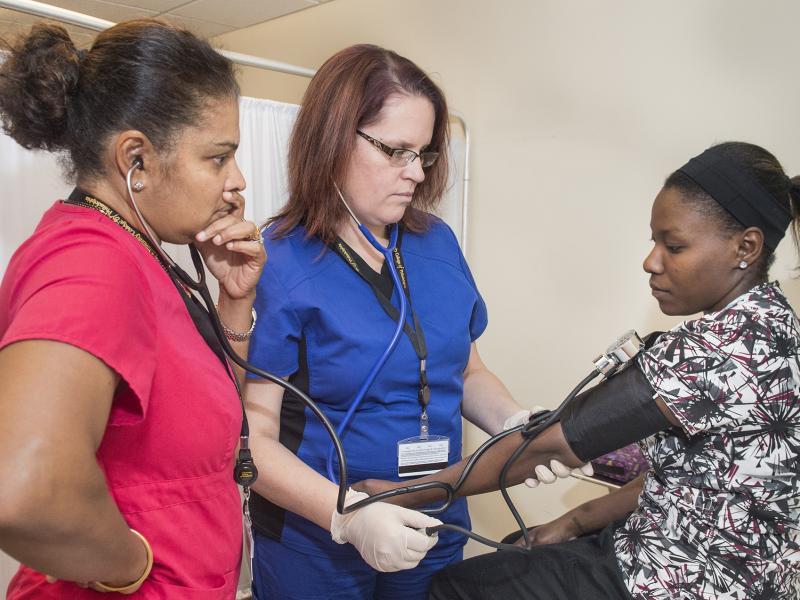-
Program Duration: 2 Year Program
-
Degree Type: Associate in Arts (A.A.)
-
Total Credit Hours: 60

About This Program
Interested in pursuing a career in health care, but not sure where to start? The Health Care Studies Program is designed for students who are interested in entering the health care profession, giving them the foundation courses necessary to apply to nursing or other select health care programs at the College, transfer to a bachelor's program, or complete an A.A. degree in Health Care Studies. Besides learning key concepts of human biology, students will also learn how to communicate effectively with others and develop quantitative reasoning skills.
Quick Information
- Online Learning 100%
- General Contact Call (215) 751-8010

Launch Your Career in Health Care Studies
- Dental Laboratory Technician – est. salary $53,361
- Medical Assistant – est. salary $45,725
- Occupational Therapy Aide – est. salary $41,181
- Phlebotomist – est. salary $46,982
Career Outlook
Median Salary of a Radiation Therapist
Number of Jobs in the Region
10-year Job Outlook in the Region for Radiation Therapists
Radiation Therapist
Provide radiation therapy to patients as prescribed by a radiologist according to established practices and standards. Duties may include reviewing prescription and diagnosis; acting as liaison with physician and supportive care personnel; preparing
Starting Pay: $95,818

Typical Tasks
- Administer prescribed doses of radiation to specific body parts, using radiation therapy equipment according to established practices and standards.
- Position patients for treatment with accuracy, according to prescription.
- Follow principles of radiation protection for patient, self, and others.
- Review prescription, diagnosis, patient chart, and identification.
- Enter data into computer and set controls to operate or adjust equipment or regulate dosage
Let's Get Started





